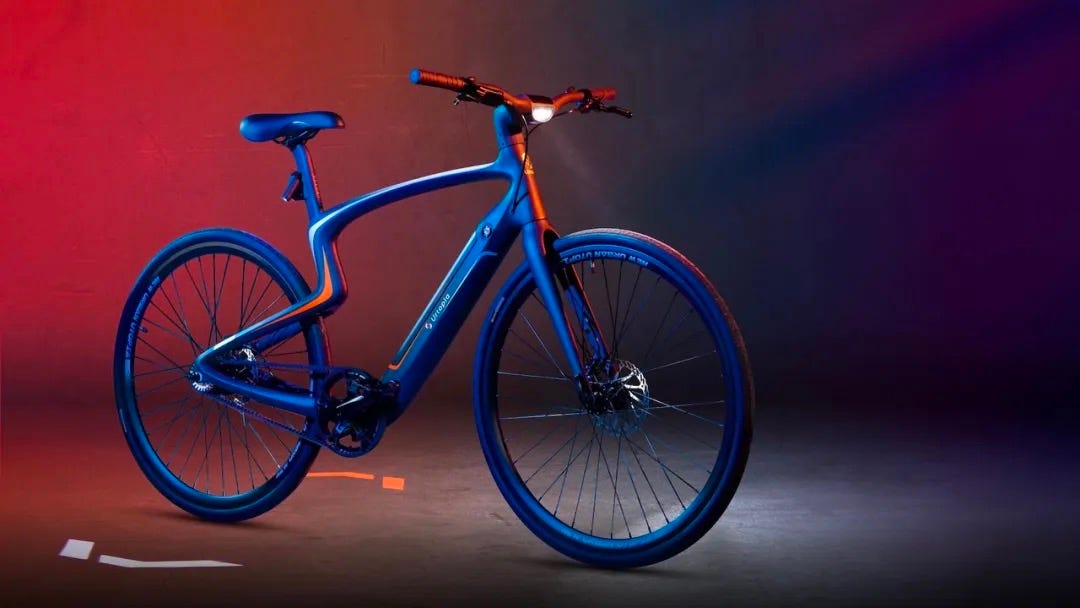Big Bets in China's Cross-Border E-Commerce: 2024 Snapshot
Investor Favorites: Robotics, Smart Wearables & Electric Two-Wheelers
Funding trends often reveal the direction of industry growth. By September 2024, Chinese cross-border e-commerce companies secured 66 funding deals, highlighting sustained investor interest.
Between January and October 2024, outbound Chinese companies completed 172 fundraising rounds across 153 firms. Of these, 63 deals focused on key sectors such as smart hardware, logistics, and financial services.
The investment landscape for cross-border e-commerce has remained stable, with capital markets showing cautious optimism
. Investment volumes are comparable to last year, with an emphasis on businesses that demonstrate strong innovation, market leadership, and profitability.
Given the resilience of the cross-border e-commerce industry, this report explores three key questions based on funding data from the first three quarters of 2024:
What does the funding landscape look like for outbound-focused industries this year?
Which sectors are attracting the most investment?
What qualities make projects more appealing to investors?
First Three Quarters Snapshot
In the first three quarters of 2024, the cross-border e-commerce sector recorded at least 66 funding deals across various industries. Outbound-focused brands accounted for 47 deals, while service providers completed 19.
Quarterly data indicates a slowdown in investment activity. Q1 recorded 28 deals, followed by 20 in Q2 and 18 in Q3. January and April emerged as the most active months, with 13 and 11 deals, respectively, suggesting periodic spikes in funding activity.
This quarter, most funding deals fell into two categories: tens of millions or hundreds of millions of RMB, with 28 deals in each range. Major players, often backed by dollar funds or buoyed by IPO success, secured the bulk of the capital. Notable companies, including Rokid, Qupital, XREAL, Unitree Robotics, Lianlian Digital, UniUni, EDA Cloud, Aiper, UGREEN, and KAITZ, raised over 200 million RMB each.
Investors continue to prioritize early- and growth-stage companies. Seed, angel, and “angel+” rounds accounted for 11 deals, while Pre-A/A/A+ rounds led with 28. B/B+ rounds logged 13 deals, C/C+ rounds recorded 3, and higher rounds totaled 2. Additionally, 6 strategic investments and 3 IPO-related financings were reported. Growth-stage companies (A, B, and C rounds) made up around two-thirds of all funding events, showcasing investor confidence in businesses with scaling potential.
Emerging brands like ETAKER, FOSHO, and Tezeus are gaining attention, spanning sectors from traditional categories like outdoor power storage and tools to innovative products like smart rings and e-bikes. This diversification reflects evolving investment priorities.
However, later-stage funding remains focused on cross-border service providers and supply chain giants. Leading service providers include EasyYa, Starmerx, and EDA Cloud, while manufacturing leaders such as Hicon and KAITZ dominate with large-scale production and contract manufacturing capabilities.
Despite some fluctuations in funding activity, the cross-border e-commerce sector remained vibrant and exhibited strong industry clustering in 2024. Investors concentrated on growth-stage companies with established brand equity or innovation-driven firms offering unique technological solutions.
Investor Favorites
Although a wide range of outbound companies secured funding in the first three quarters of 2024, certain product categories and service providers have clearly captured the most investor attention, dominating the funding landscape.
Robotics
Robotics has emerged as the standout focus for investment this year, covering subcategories such as intelligent cleaning robots, underwater robots, and humanoid robots. Among the 47 funded outbound brands, 10 are dedicated to robotics. Many of these companies are early-stage ventures led by experienced industry professionals, positioning themselves as high-potential players in this rapidly growing market.
Unitree, a leader in humanoid robotics, secured the largest funding in the sector, raising RMB 1 billion (USD 137.99 million) from investors like Meituan, Golden Stone Investment, and Shenzhen Capital. It is the only Chinese company included in The Robot Report's trends for North America's robotics market. Since its founding in 2016, Unitree has dominated the global quadruped robot market with over 60% share and is now expanding into humanoid robots, with its first model priced at $90,000.
The smart outdoor cleaning robot segment is also gaining traction, with Aiper emerging as a prominent player. Focused on intelligent outdoor solutions for Europe and North America, Aiper has become China’s top brand in pool robot shipments and ranks third globally in the pool robot industry, demonstrating its competitive advantage on the international stage.
With 250 million private gardens worldwide, Europe and the U.S. account for over 80% of the market share. As traditional fuel and hybrid-powered products phase out, the demand for modern, eco-friendly solutions is surging, creating a key opportunity for Chinese companies. Brands such as Yarbo, SMOROBOT, and Beatbot have capitalized on this trend, securing multi-million and even billion-yuan investments.
Smart Wearables
Smart wearables, including AR glasses, night vision goggles, and smart rings, have also emerged as a critical investment trend in 2024's cross-border e-commerce space. Seven funding events took place in this category, with AR glasses leading the way, accounting for five rounds of investment.
The global AR glasses market is expected to reach 650,000 units in shipments in 2024, marking a 27% year-over-year growth. Looking ahead, significant growth is projected between 2026 and 2027, with a compound annual growth rate (CAGR) exceeding 135%.
This surging demand has propelled companies like Rokid, XREAL, INMO, and RayNeo onto the global stage. Among them, RayNeo has distinguished itself as a rising star. Founded at the end of 2021, this "AR dark horse" has quickly climbed into the top five for global AR glasses shipments. Its rapid growth has helped it secure two funding rounds this year, totaling RMB 500 million (USD 68.63 million).
In the niche market of smart rings, RingConn has quickly become a leader. Founded by three academic experts from Shanghai Jiao Tong University, the company has developed proprietary technologies for low-power bio-signal collection and biosensing.
In just one year, RingConn achieved millions in revenue in 2023, relying exclusively on its direct-to-consumer (DTC) independent website. This success highlights its innovative business approach and significant market potential.
Electric Two-Wheelers
Electric two-wheelers—including e-bikes, e-motorcycles, and e-scooters—have become a leading category for Chinese brands expanding into overseas markets. These products have driven some of the most notable "growth stories" in the cross-border e-commerce industry in recent years.
According to Meticulous Research, the European electric two-wheeler market is expected to grow at an impressive compound annual growth rate (CAGR) of 43.1% from 2021 to 2028, reaching a market size of $210.63 billion. Similarly, Mordor Intelligence projects that the North American e-bike market, valued at $2.89 billion in 2023, will grow to $7.54 billion by 2029, with a CAGR of 17.33%.
However, as the electric two-wheeler market becomes more crowded, challenges such as oversupply and mounting competition are emerging. Despite these obstacles, early movers that established solid foundations during the sector’s initial growth phase continue to demonstrate resilience. These companies maintain strong market positions and attract sustained investor interest.
Of the 47 outbound brands analyzed, seven operate in the highly competitive electric two-wheeler sector, underscoring the ongoing appeal of this market to investors.
Leading brands like DYU, PAI, and URTOPIA have each secured funding in the hundreds of millions of yuan, reflecting investor confidence in companies with established market share and strong supply chains.
Meanwhile, newer entrants are finding success by differentiating themselves with unique strategies. For example, Kuiperbelt, founded in 2022, has positioned itself as a "latecomer" with a distinct niche, branding its products as the "SUV of the E-bike world." By focusing on innovative designs, all-terrain functionality, and expandable features, Kuiperbelt has gained significant traction in Europe and the U.S., particularly within the mid-to-high-end market.
Logistics and Supply Chain
Logistics and supply chain firms have become a major focus of cross-border e-commerce investments. Among the 19 service provider funding events tracked in 2024, eight—accounting for over 40%—were in this sector.
These eight companies can be categorized into two primary groups:
Platform-Based B2B Procurement Providers: Companies like EasyYa and LVSSN GROUP leverage big data to connect factories with sellers, simplifying and streamlining supply chains.
Specialized Logistics Providers: Firms such as EDA, Panex WD International, Youpinmei, and UniUni focus on overseas warehousing, cross-border logistics, and middle-to-last-mile delivery, enhancing fulfillment efficiency for global e-commerce operations.
Spotlight: UniUni
Among the companies funded, UniUni has emerged as a leader in last-mile delivery services. Founded in 2019, UniUni has quickly become a key player in North American e-commerce logistics. The company delivers tens of millions of packages annually across Canada and operates more than 50 high-capacity sorting centers across the continent.
UniUni's rapid growth during the pandemic was nothing short of extraordinary, with a staggering 12,854% growth rate. This achievement earned the company the fourth spot on The Globe and Mail's 2023 list of Canada’s fastest-growing companies. UniUni’s success highlights the critical role of efficient last-mile delivery in meeting the demands of the cross-border e-commerce boom.
Trends
Smart Technology
A dominant investment theme among the funded companies in 2024 is the rise of “smart” technology. Of the 66 companies that secured funding, at least 20 have tied their brands to concepts like "smart" and "AI."
Traditional product categories are undergoing significant transformation as companies in sectors such as lighting, fitness, musical instruments, and pet supplies increasingly integrate elements of "smart," "automation," and "interactivity" into their offerings. These technologies are reshaping the fundamental nature of these products through innovation.
For investors, the appeal of "intelligence" as a trend remains strong—even if, at times, the "smart" label leans more on marketing than substance. Wei Zhe, founding partner of Vision Knight Capital, noted:
"As for what people call 'smart,' what we care about is whether it's 'powered' or not. For powered products, even without an app or advanced 'smart' features, if the company invests in R&D and iterates well, we're still willing to invest."
Intelligent technologies are not only transforming consumer-facing products but also redefining the broader cross-border business ecosystem.
Production: Big data and AI are driving rapid product iteration, replacing the traditional "small workshop" approach in designer studios. For example, Stepin, an "AI jewelry" brand, has introduced a fast-fashion model to the jewelry sector, producing 400–500 new designs each month.
Supply Chain: Intelligence has become the standard across the supply chain, from road transportation and last-mile delivery to overseas warehouses and logistics providers. Smart systems and algorithms now optimize transport capacity, route planning, inventory management, and transaction processes.
Interestingly, the adoption of intelligent solutions in the supply chain is often outpacing transformations on the consumer-facing side. This shift highlights the growing importance of operational efficiency and technological innovation in shaping the future of cross-border e-commerce.
Lifestyle and Hobbies
"Lifestyle and hobbies" have emerged as a key theme for cross-border e-commerce brands, with many tailoring their product offerings to match the hobbies and preferences of overseas consumers. This trend focuses on products that resonate with niche "Western-style" lifestyles, which may seem unfamiliar to Chinese shoppers but hold significant appeal abroad.
Popular products in this category include:
Outdoor energy storage solutions
Ice makers and portable coolers
Pool-cleaning robots
Pet textiles and smart pet products
Fitness equipment and electric grills
Outdoor gear and exoskeletons
These products align with the unique lifestyles and hobbies of customers in international markets, particularly in Europe and North America.
Lifestyle products are frequently considered "exclusive to overseas markets," reflecting the current focus of cross-border e-commerce investment. Wei Zhe, founding partner of Vision Knight Capital, highlighted this shift in strategy:
"As we transition from the first to the second phase of the cross-border e-commerce journey, our investment strategy has shifted from 'universal' categories to those unique to overseas markets."
According to Wei, products that cater to both domestic and international markets face intense competition, as they are easily replicated by domestic companies, leading to price wars. In contrast, overseas-exclusive categories require a deeper understanding of foreign lifestyles, making them harder to replicate. With fewer suppliers in China, these niche categories represent a less competitive "blue ocean" market with significant opportunities.
While many companies in the lifestyle and hobbies sector are brand-focused, some stand out as key supply chain leaders in the B2B space, serving as manufacturers for major industry players. Notable examples include:
Hicon: Specializing in refrigeration equipment.
Alpicool: A leader in car fridges.
SOHOW: Known for small appliances.
KUNGFUPET: Innovating in smart pet products.
KAITZ: A major player in pet food manufacturing.
Vision Knight Capital exemplifies the shift toward investing in cross-border brands with robust supply chains. Recent investments include Sijiu Tech, Alpicool, Hicon, and UREVO, all of which own their own factories.
This represents a notable change in Vision Knight Capital's approach. Prior to 2023, none of its investments focused on companies with in-house manufacturing. However, starting that year, all investments prioritized firms with strong supply chains and R&D capabilities. Wei Zhe explained the reasoning behind this shift:
"You need the courage to consider setting up factories. Or when factory-focused companies enter the market, you will have no defense. Even if you don't operate a factory, you must understand their business and influence them."
This approach underscores the importance of manufacturing capabilities in maintaining competitiveness in the cross-border e-commerce landscape, particularly in lifestyle and hobby-driven product categories.











